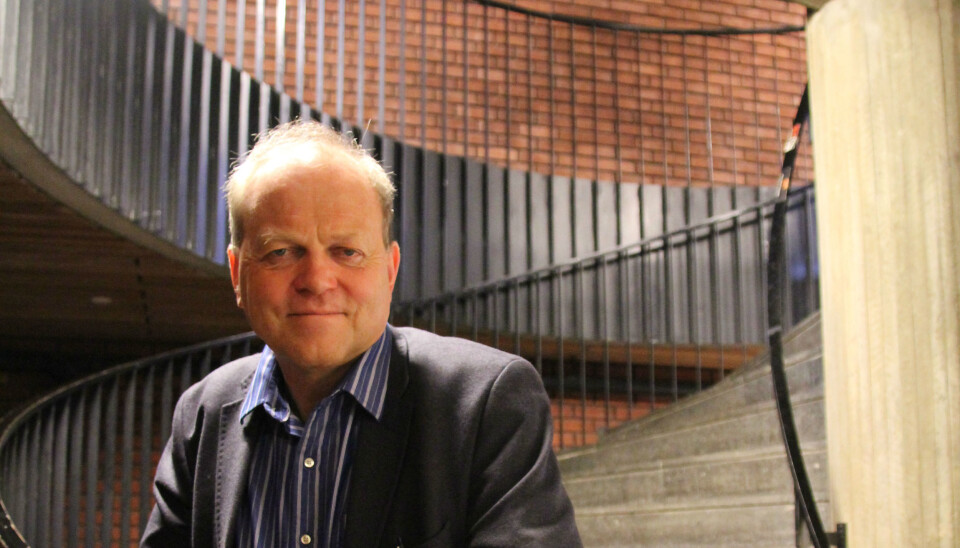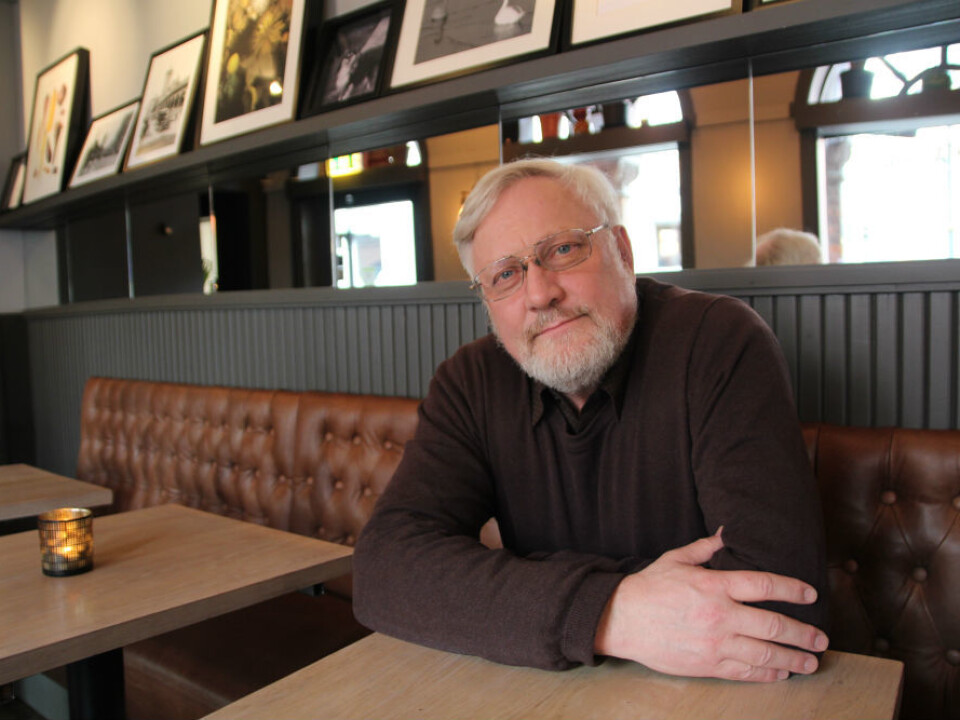An article from The Norwegian National Committees for Research Ethics

"Extremism is a research ethics minefield"
Are extremists as entitled to privacy as other people? How should researchers avoid helping them – or opening old wounds among victims and their families? Two of Norway's leading researchers in the field believe that research on extremism requires a high level of awareness of ethical issues.
Anders Behring Breivik seriously put terrorism and extremism on the map in Norway on 22 July 2011. The terrorist acts in Paris, Brussels, Copenhagen, Lahore and Ankara have kept terrorism on the agenda ever since.
Researchers are our oracles in an age of confusion, fear and frustration. Politicians want information that helps them make the right decisions. The population wants knowledge that helps them understand, and preferably reassures them.
Researchers carry a heavy burden.
More benefits than burdens
"Extremism is a research ethics minefield where there is a risk of serious missteps. I have seen examples of this. We need a high level of ethical awareness when we approach this type of research," says Tore Bjørgo, Professor at the Norwegian Police University College.

He is the head of C-REX – Center for Research on Extremism at the University of Oslo, which opened officially on 20 April 2016. C-REX was established after the events of 22 July 2011, and studies right-wing extremism, hate crime and political violence.
Lars Gule, philosopher and Associate Professor at the Oslo and Akershus University College of Applied Sciences, agrees with Bjørgo. Gule has conducted research on extreme Islamism and the concept of extremism, and has been an active participant in online debates for many years, including with Fjordman and Breivik.
"There are many research ethics dilemmas associated with this type of research, and it is worth asking whether studying extremism and terrorism and publishing findings can be justified at all. The answer is nonetheless a resounding "Yes". Even though there are dilemmas, the benefits of the research outweigh the burdens," he believes.
Invitation from Breivik
Gule is one of the contributors to a forthcoming book on research ethics and the people who were directly affected by the events of 22 July 2011. Here he discusses the consideration that should be afforded to the survivors and victims of acts of terrorism, the privacy of extremists, and the risk of helping them clarify their ideology. Gule also explains his thought process in 2014 when Breivik invited the researcher to interview him, as one of a select number of researchers.
The National Research Ethics Committees stressed that involving Breivik in research could only be justified if the benefit to society was substantial, and warned the researchers to proceed with care. Gule asked himself whether interviews could actually yield information that was so valuable that it made up for the potential burdens for the people affected and the general public.
"Many of the survivors and the victims' families want Breivik to be mentioned as little as possible. They want to forget him and what he represents. This is a legitimate desire, and something researchers must also take into consideration," points out Gule.
Nevertheless, he believes that there is still much to be learned from the acts of terrorism of 22 July, and that research therefore cannot preclude interviews or conversations with Breivik.
"What researchers need to keep in mind is how to avoid or reduce retraumatisation and other heavy burdens as much as possible. Good communication with victims’ families can be an important instrument."
A guiding hand is not an option
Gule says that Breivik made several demands regarding how the research should be conducted.
"We made it clear via different media that any form of guiding hand was not an option. This was likely part of the reason why Breivik broke off contact with us," says Gule.
Tore Bjørgo and a colleague contacted Breivik themselves to request an interview, in connection with a study of the decision-making processes that govern terrorists' choice of targets. However, Bjørgo says they found Breivik to be so manipulative and difficult to deal with that they themselves decided to abandon the attempt to interview him.
Involuntary helpers
Like Gule, Bjørgo also had certain misgivings about interviewing Breivik. He was worried that the research could help Breivik in different ways.
"The research has many user groups, and some of them may be terrorists or extremists themselves," says Bjørgo.
For example, it can be a matter of involuntarily helping extremists clarify their ideology. According to Gule, neither extremists nor Islamists in Norway have a clear ideology, which was also true of Breivik.
Gule further observes that researchers' descriptions of Breivik in court may have contributed to a development of his ideology where he has ended up defining himself as a national socialist.
Bjørgo has also contributed in more ways than planned through a project on vigilante groups in different countries. In an interview about Soldiers of Odin on national broadcaster NRK, Bjørgo said that it was his understanding that many of its members wanted to make amends for their criminal past. Shortly after, the group's leader repeated Bjørgo's words almost verbatim in a different interview.
"This is a form of acknowledgement that my analysis was correct. At the same time, it is a paradox that I have become a sort of purveyor of a hefty self-image," says Bjørgo.
Ambiguous rules
Privacy is a matter of concern to both Gule and Bjørgo. Do known or suspected extremists have the same right to information, consent and anonymity as the rest of the population?
The matter came to the fore through a project where the Norwegian Defence Research Establishment (FFI) wanted to chart the motives of young people who travel from Norway to Syria to take up arms. The plan was to use information that was already publicly available, like newspaper articles, tweets or Facebook messages in open groups.
The Norwegian Data Protection Authority granted FFI an exemption from the requirement of consent, but demanded that the so-called foreign fighters be informed that they were subjects of research. FFI found this to be almost impossible and halted the project.
Bjørgo believes that the legislation on privacy is both ambiguous and strictly practised.
"As researchers, we are very uncertain about what we are actually allowed to do, and how to proceed in order to conduct research on extremist groups," he says.
"On the one hand, there are researchers without any awareness of ethical issues. On the other hand, the rules are so difficult that they make research impossible. It is difficult for us to achieve the proper balance, and right now the complexity of the rules dominates," believes Bjørgo.
Losing out to the media
The media are exempt from the strict rules governing privacy. Journalists can collect and present material about extremists to a greater extent than researchers. They can also do so in a simpler and faster way. According to Bjørgo, this means that researchers must leave some things to the media, such as obtaining the knowledge on which political decisions are based.
"It is frustrating that we cannot provide research-based knowledge which we believe will be both more credible and more accurate," he says.
Gule sees a need for strict provisions regarding privacy, while he believes that researchers have an ethical responsibility to illuminate the general public.
"The question is whether we should just step up and say that as long as researchers are not going any further than journalists, and also providing anonymity, this should be acceptable."
No exception
The Norwegian Data Protection Authority says that the rules regarding privacy apply to everyone, and they cannot be relaxed in order to make it easier to conduct research on extremism or extremists.
"If you are going to make an exception, who is it for? Is it people whose opinions we do not like?" is the rhetorical question posed by Eirin Oda Lauvset, Senior Adviser.
However, she points out that in cases where the benefit to society is great, it is possible, for example, to drop the requirement of consent.
Lauvset believes that the rules regarding privacy are not a major obstacle to research on extremism. And unlike Lars Gule and Tore Bjørgo, she does not find it natural to compare researchers and the press in relation to privacy.
"Their roles are completely different, and there are many reasons why the press are exempt from certain rules, like the Personal Data Act, while researchers are not exempt," she says.
































